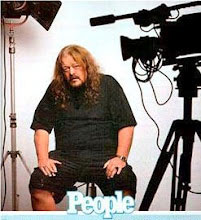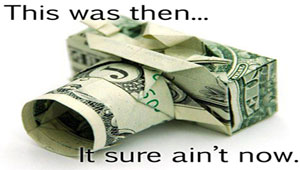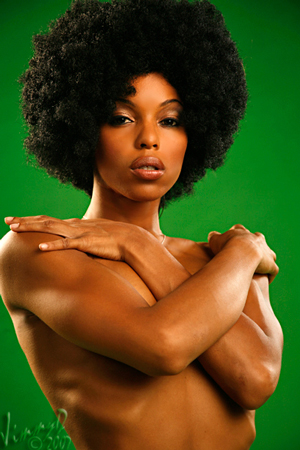
There was a time, not too long ago in fact, when my camera was a money machine. Don’t get me wrong, I’ve never made Annie Leibovitz money, not even remotely close, but my camera(s) afforded me a pretty decent living. Unfortunately, that was then. As for now? Well, let’s just say I get by. I just get by.
What happened? It’s not like I forgot how to do all that I know how to do. It would be easy to simply blame the digital revolution but the truth is I made even more money after SLRs (and video cams) went digital. I think what happened is perceptions changed.
Which perceptions?
Those perceptions which some people (clients) had about a photographer’s skills and the relationship between those skills and a photographer’s ability to snap the kinds of pics they needed for their sales and marketing efforts. (Or, for that matter, anything else.) It’s not that they (clients) no longer needed photographers, it’s more that many of them came to believe it really doesn’t take much skill or experience to shoot the kinds of competent images they wanted, especially since (in their minds) digital made everything so easy and nearly no-brainer. Worse yet, their newly born ideas about what constituted competent photos became not far off from their own, previously stated, ideas of what constituted incompetent photos. In other words, they lowered their own bars. And they lowered them significantly!

I have to tell you, it’s tough competing against incompetence (via inexperience or otherwise)) when incompetence, suddenly and magically, becomes perceived as competence even though the poor quality of the photos themselves — snapped by either incompetent or inexperienced photographers — hasn’t much changed. (Assuming it has changed much at all.) In other words, at least in my mind, the same elements of a photo which may have made it suck then still make it suck now. The only difference on the Suck-O-Meter is that some peoples’ (clients’) versions of what sucks and what doesn’t suck has changed. It’s like they’ve recalibrated the Suck-O-Meter to make it show something as “not sucking” when, previously, it would have registered well into the “Sucks” portion of the meter. Either that or they know the work still sucks but they really don’t give a rat’s ass because they’ve decided the consumers of their products can’t tell the difference between a good photo and one that sucks. Or, they decided consumers won’t be more inclined to purchase simply because the artwork selling the product is good, or less inclined because elements of the artwork, like the photos, now suck.
So this new acceptance of what was previously deemed unacceptable meant the only thing that matters is price. I don’t mind competing with price as long as the pricing games are played on something marginally resembling level playing fields. Unfortunately, and often enough, it’s not that way. With true quality and photo excellence being removed from the equation, leastwise removed to great extents, the only thing left in the equation is $$$.

I’d rather starve than trade all my years of learning and practicing and adapting my photography skills just to eat beans, regardless of the fact that I generally like beans and I could eat as many of them as I’d like even while working for beans, beans being cheap and all. And if and when starving isn’t something I’m idealistically willing to do, I’d rather do something else in order not to starve. Something other than snapping pics, that is.
You see, in my mind, it makes a mockery of a lifetime of working hard to become good at something. Perhaps I’m being just plain stubborn? You know, by refusing to work for half or less of what I once routinely charged. Oh bloody well. Call it what you will but I still won’t budge.
Some of my clients are puzzled why I won’t work for ridiculously low rates. They seem to think I’m being ungrateful or something else because I won’t budge on my price by 50% or more. After all, there’s not as much work as their once was and I should be kissing their asses because, for old time’s sake I suppose, they’re giving me first crack at the work… even though the work pays like shit. Here’s some 411 for those people: Don’t do me any favors. I’ll get by with or without your cheap-ass help. And just so ya know, I noticed you aren’t charging much less for the products my work helps you sell. If drastically cutting your prices is unacceptable to you, I really don’t understand why you think drastically cutting my rates should be acceptable to me… what’s good for the goose and all that.
I should mention that all my clients aren’t acting this way. But some are. One of them recently became enraged with me because after they hired another photographer instead of me, one who was basically clueless when it comes to shooting glam models, and the work he turned in was incredibly bad and amateurish, they came back to me for help. Not only would I not reduce my rates by as much as a penny, I charged them more than I have previously charged them for the same work. They still hired me to save their sorry asses (they were kind of in a bind and all) but they’ll probably never hire me again. Oh well. Just because they don’t have any principles doesn’t mean I have to forget about mine.
BTW, for those who are scoring gigs because guys like me won’t work for what you’re willing to work for, odds are you’ll never get paid much more than the low rates you’ve set for yourselves in order to get the work, whether you’re actually qualified for some of that work or not. Rates may not return (in big ways) for guys like me but, for many of you who are willing to work for shit, there’s a good chance you’ll never know what it’s like to get paid to shoot what you’re worth as a shooter… even once your skill levels are good enough to warrant such pay. And you’ll have no one to blame but yourselves. When you somehow helped clients set the quality bar low, you also helped them set the pay bar low.


